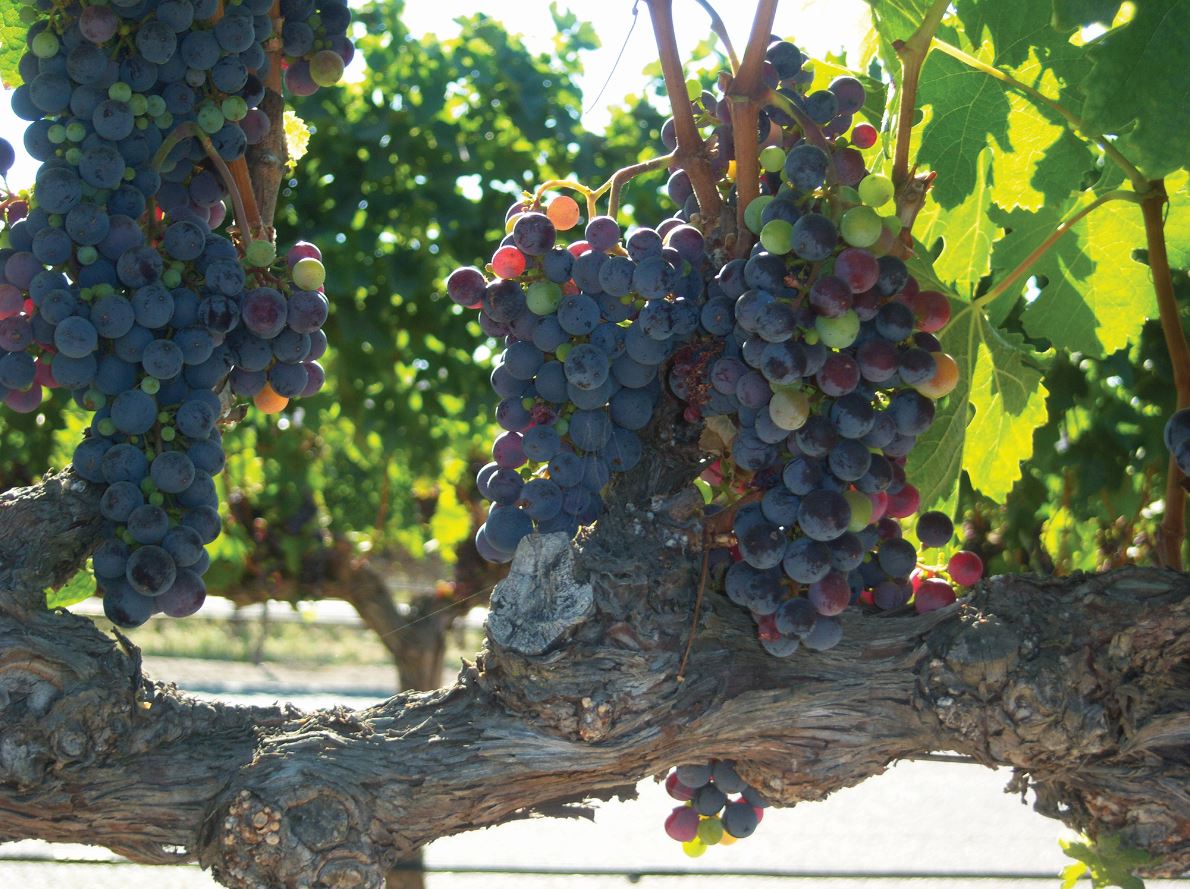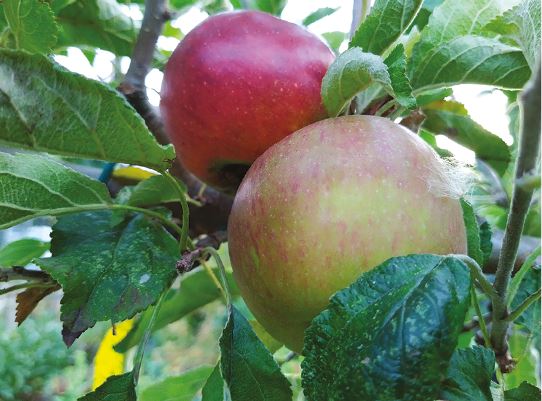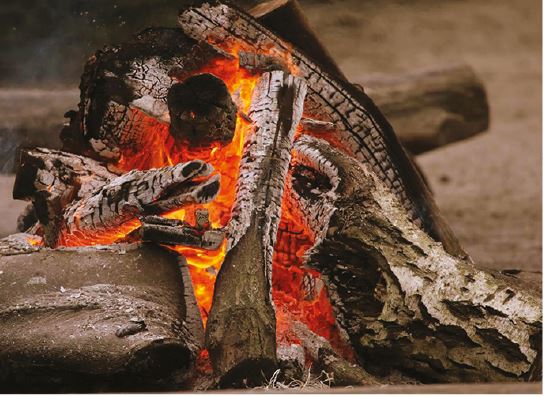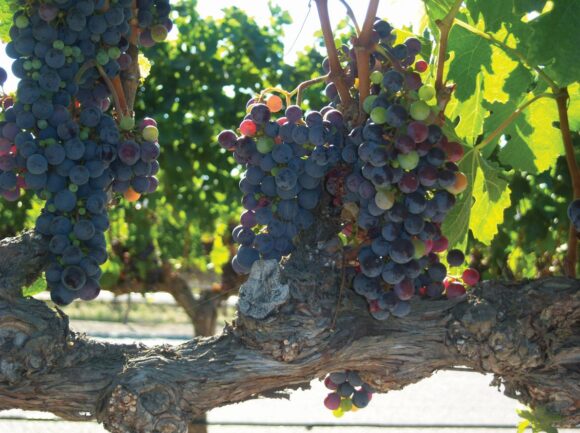The Gospel of John records a number of sayings of Jesus which begin “I am…” In this series we think about some of the profound things he said about himself.
You can catch up with the previous articles at https://gladtidingsmagazine.org/previous-articles/
I AM THE TRUE VINE, and my Father is the vine dresser. Every branch in me that does not bear fruit he takes away, and every branch that does bear fruit he prunes, that it may bear more fruit. Already you are clean because of the word that I have spoken to you. Abide in me, and I in you. As the branch cannot bear fruit by itself, unless it abides in the vine, neither can you, unless you abide in me. I am the vine; you are the branches. Whoever abides in me and I in him, he it is that bears much fruit, for apart from me you can do nothing. If anyone does not abide in me he is thrown away like a branch and withers; and the branches are gathered, thrown into the fire, and burned (John 15:1–6).
Jesus is talking about being a part of him, the true vine. As the one true vine he is the source of real truth; all others who make claims to be so are false teachers, false prophets and false Messiahs (see Matthew 24:24); they are not his, and they do not belong to him, and they do not teach what is true.
As the branches depend upon the vine for sustenance and life, anyone who follows Jesus will be dependent upon him for knowledge of the Gospel, and of the coming Kingdom of God.
The Vine Dresser
We note that in this metaphor it is God the Father who is the ’vine dresser’, and ‘every branch in me that does not bear fruit he takes away’. The Lord God looks after the vine and removes the branches that do not bear fruit. Jesus’ parable of the tares (Matthew 13:24–30) gives us an insight into how this can happen.
However, for the true believers God treats them differently. They may suffer trials and difficulties in their lives, but if their faith is strong they will persevere—‘every branch that does bear fruit he prunes, that it may bear more fruit’. Bad things can happen in a believer’s life which may be hurtful or worrying at the time. This is God ‘pruning His vine’. But if we remain steadfast, our faith is strengthened and we will bear even more fruit.
What is this fruit? Jesus speaks on many occasions about the necessity of bearing fruit. A good definition of it is given by the Apostle Paul: ‘But the fruit of the Spirit is love, joy, peace, patience, kindness, goodness, faithfulness, gentleness, self- control; against such things there is no law’ (Galatians 5:22–23).
‘Abide in me, and I in you. As the branch cannot bear fruit by itself, unless it abides in the vine, neither can you, unless you abide in me.’ To abide in the Lord Jesus means to hear his word (for us today, it means to read the Word of God) and take it into our hearts and minds. And also, as I’ve already mentioned, it means being part of him. The important thing then, is to obey his commandments: ‘Greater love has no one than this, that someone lay down his life for his friends. You are my friends if you do what I command you’ (John 15:13–14).
For those who abide in Jesus, God’s promise holds true: ‘He will be with you; he will not leave you or forsake you. Do not fear or be dismayed’ (Deuteronomy 31:8).
The Fruitless Branches
Jesus ends the parable: ‘If anyone does not abide in me he is thrown away like a branch and withers; and the branches are gathered, thrown into the fire, and burned.’ This seems to be extreme language, but the Lord appears to be referring to the prophet Malachi: ‘For behold, the day is coming, burning like an oven, when all the arrogant and all evildoers will be stubble. The day that is coming shall set them ablaze, says the Lord of hosts, so that it will leave them neither root nor branch’ (Malachi 4:1).
The language is extreme but the message is clear. When someone who has been baptised, having confessed their faith in God the Father and the Lord Jesus, decides they no longer want to have anything to do with God and abandons their faith, they will not do this without consequences.
This is how the letter to the Hebrews puts it: ‘Let us hold fast the confession of our hope without wavering, for he who promised is faithful. And let us consider how to stir up one another to love and good works, not neglecting to meet together, as is the habit of some, but encouraging one another, and all the more as you see the Day drawing near. For if we go on sinning deliberately after receiving the knowledge of the truth, there no longer remains a sacrifice for sins, but a fearful expectation of judgement, and a fury of fire that will consume the adversaries’ (Hebrews 10:23–27).
These words were initially directed toward Jews who had converted to Christianity but wanted to return to Judaism and to observing the Law of Moses again, but they obviously have a more general application. What is the fate of these fruitless branches? In other parables Jesus describes this fate as ‘outer darkness. In that place there will be weeping and gnashing of teeth’ (Matthew 8:12), and also ‘hell, where their worm does not die and the fire is not quenched’ (Mark 9:47–48). And in Revelation as ‘the second death’ (Revelation. 2:11). The language is figurative—the Bible does not teach the idea of hell as the place of fiery torment which is believed by some churches—but the seriousness is clear.
The Fruitful Branches
If we believe, repent of our sins and are baptised, we become part of God’s family. We become branches of the vine which is the Lord Jesus Christ. Being baptised is not enough, we must then strive to keep his commandments (John 14:15, 23; 15:10). This way we will be able to ‘bear much fruit’.
It is a wonderful thing to abide in the Lord Jesus; anyone who does so has the hope of eternal life in the coming Kingdom of God: ‘Whoever believes in the Son has eternal life; whoever does not obey the Son shall not see life, but the wrath of God remains on him’ (John 3:36).
Grahame A Cooper
Other pictures of Christ and his disciples …
For just as the body is one and has many members, and all the members of the body, though many, are one body, so it is with Christ. For in one Spirit we were all baptized into one body—Jews or Greeks, slaves or free—and all were made to drink of one Spirit. For the body does not consist of one member but of many.
(1 Corinthians 12:12–14)
So then you are no longer strangers and aliens, but you are fellow citizens with the saints and members of the household of God, built on the foundation of the apostles and prophets, Christ Jesus himself being the cornerstone, in whom the whole structure, being joined together, grows into a holy temple in the Lord. In him you also are being built together into a dwelling place for God by the Spirit.
(Ephesians 2:19–22)





